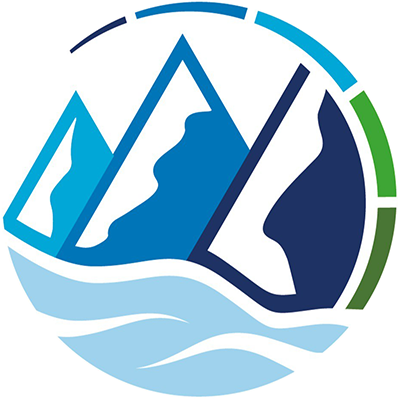No. 45 (569) May 2025
HIGH-LEVEL INTERNATIONAL CONFERENCE ON GLACIERS' PRESERVATION
29-31 May, 2025 Dushanbe, Tajikistan
The High-Level International Conference on Glaciers' Preservation aimed to anchor the importance of glaciers and the urgency of stopping the accelerated melting, calving and retreating of glaciers on the international agenda, and advance global efforts in addressing glacier melt and its wide-ranging impacts through collaborative action, scientific innovation, and policy alignment.

Key objectives included advancing scientific research and monitoring to better understand glacier dynamics, addressing the socio-economic consequences of glacier retreat, and promoting integrated adaptation strategies such as early warning systems and disaster risk reduction.
The Conference focused on:
- Promoting scientific research and monitoring. Advancing glacier and high mountain cryosphere science including Indigenous knowledge, technological innovations, and monitoring systems. These efforts will enhance understanding of glacier retreat dynamics and their impacts on ecosystems, water resources, and the global climate system.
- Addressing socio-economic impacts of glacier melting. Examining the downstream socio-economic consequences of glacier retreat, including its effects on water availability, food security, hydropower, cultural heritage and sea-level rise. The conference will explore actionable solutions to mitigate these impacts and enhance the resilience of glacier-dependent communities.
- Enhancing climate resilience and adaptation strategies. Promoting integrated approaches for adaptation and mitigation, including early warning systems, disaster risk reduction, and infrastructure solutions to manage water resources and prevent glacial hazards. The Conference will prioritize strategies that enhance community resilience, especially in vulnerable regions.
- Raising awareness and mobilizing resources. Increasing global awareness of the vital role of glaciers preservation in ecological balance and socio-economic stability. The Conference will seek to mobilize financial and technical resources for glaciers preservation initiatives and facilitate the dissemination of best practices and transformative climate solutions.
- Linking water, biodiversity, desertification and climate agendas for sustainable development. Highlighting the interconnection between water and climate agendas, while exploring opportunities to integrate glaciers preservation into broader efforts to address global water availibility, energy, and food security challenges. The Conference will promote the alignment of glaciers preservation initiatives with long-term development goals.
- Catalyzing actions through key frameworks and partnerships. Leveragaging key global frameworks, such as the “Pact for the Future”, and strengthen partnerships and promote transformative actions in glaciers preservation. This includes creating pathways for collective action to mitigate the effects of glacier melt on global ecosystems and human well-being.
The Pre-Conference Day (May 29) included a number of forums:
- Agriculture in a Time of Glacier Loss: Addressing droughts, flooding with carbon sequestration and resilience in glacier-dependent regions
- Children and Youth Glacier Preservation Forum
- Regional Forum on Glacier Monitoring and the Cryosphere in Central Asia
- From IYGP to Decade of Action for Cryospheric Sciences, 2025-2034
- Ministerial Dialogue on Climate Resilience, Glacier Preservation and Water Cooperation
- Enhancing Transboundary Cooperation for Water Sustainability and Climate Resilience in Glacier Dependent Basins of Central Asia
- Towards Sustainable Water Management in Central Asia: The Role of Cryosphere Monitoring in Water Allocation Decision-Making
- Women Forum on Glaciers Preservation
18 side events were held in parallel:
- Advances in the Study of Tajikistan's Cryosphere: Current Achievements and Future Directions
- Decentralised Sanitation Solutions Roundtable: Bridging Policy, Technology and Practice
- Adaptation and Resilience to Glacial Hazards
- Glaciers and Science
- Science Diplomacy for Glacier Preservation and Transboundary Water Resilience in the Hindu Kush Himalaya
- The Role of Mass Media and Social Networks in the Study and Preservation of Glaciers
- Isotopes and Innovative Technologies in Glacier Studies
- Water Security and Climate Resilience: Addressing the Environment Challenges in CICA Member States
- Catalyzing Global Action for Glacier Resilience: Civil Society Experience from Central Asia
- Glaciers, the 3rd Pole and the Central Asian Flyway of Migratory Birds
- Melting Po(in)t: An Intergenerational Dialogue on Glacier and Water Issues
- Pathways to Action: Tackling Super Pollutants for Glacier Preservation for the High-Level International Conference on Glaciers' Preservation
- Song of Glacier
- Water Resources Stereoscopic Monitoring in Tajikistan
- Strategies for Sustainable Use of Water Resources
- Human Mobility and Climate Change in Mountain Areas: Priorities for action
- Carbon Markets as a Tool for Monetizing Environmental Projects: Lessons for Central Asia
- Climate Science and Research Inventory: A Foundation for Sustainable Solutions in Central Asia
Source: dushanbeicgp2025.com